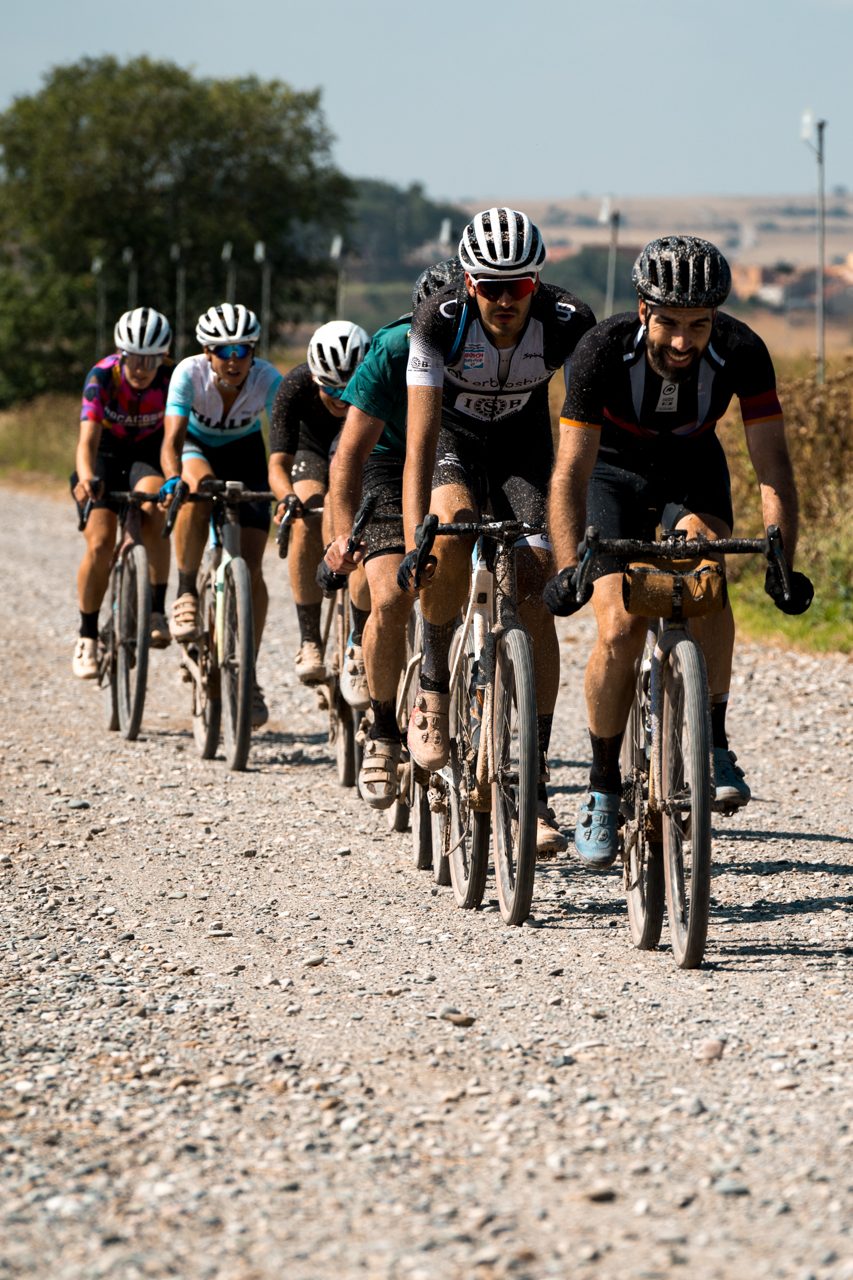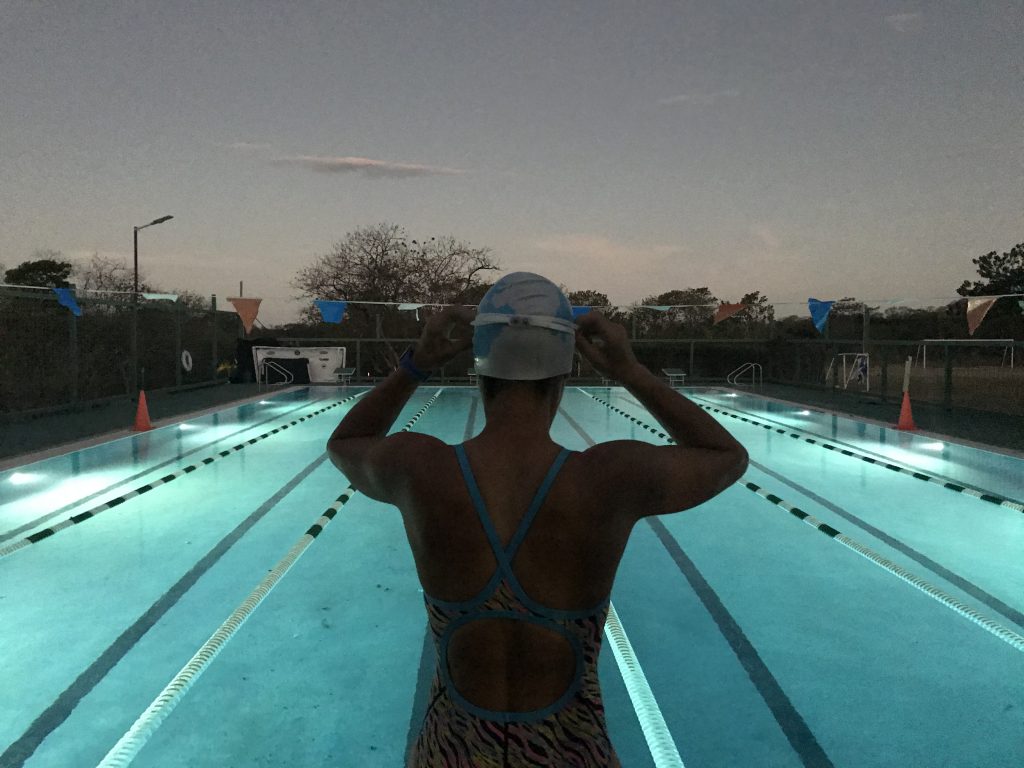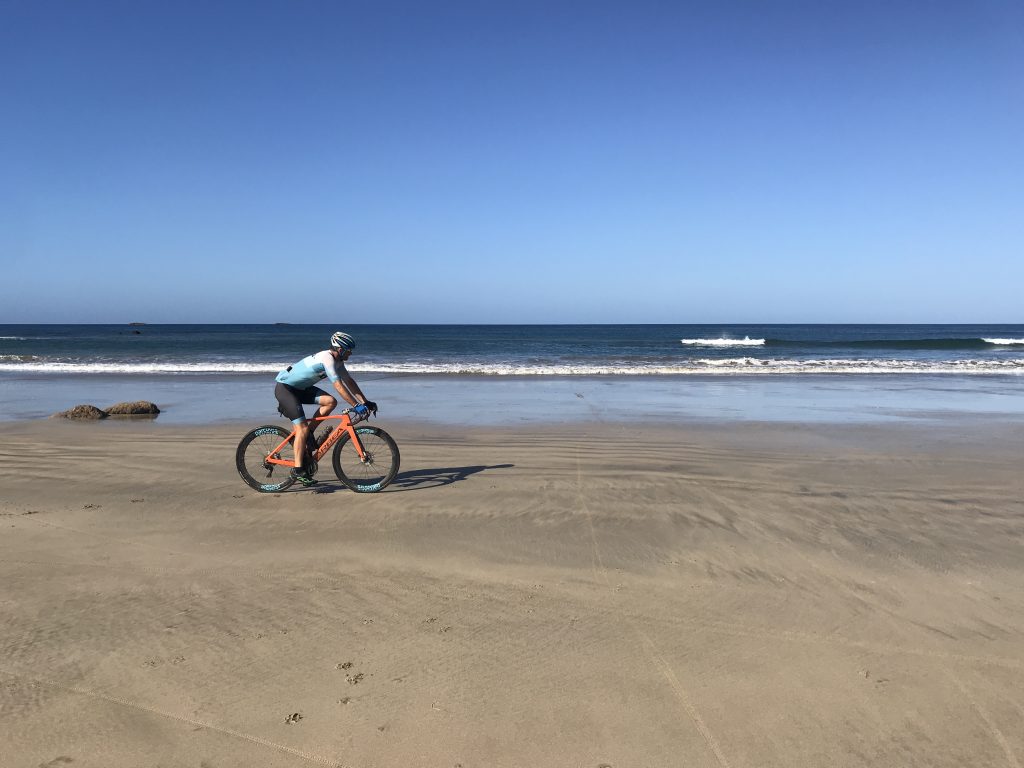It’s likely if you are on social media that the algorithms are showing you targeted marketing about AI coaching platforms for sports. The machines themselves touting AI as the panacea for athletes and coaches. Perhaps you have been wondering what it can do.
Caroline Livesey, Xhale Coaching

I am fascinated. And I am not here to rubbish the concept. It is likely there are demographics of athletes who can benefit from these applications. But lets get a few things straight…
Even the term “coaching” encompasses a huge sphere of interactions across sports, business and lifestyle. It means wildly different things to different people. Each coach has a different style, background, comes with varied experience and knowledge, and will have a different way of interacting with their athletes.
Credit: Nils Laengner, Badlands 2023
And AI is not one thing either. Various platforms are using it in different ways, and it is changing all the time. These things make it a difficult discussion to have, comparing two concepts which are not one thing. But I do think there are some generalisations which can help you to understand AI in this context a bit better.
What is an AI coaching platform?
AI is an emerging (and constantly changing) technology. When we hear “AI coaching”, what we are really seeing is platforms that use artificial intelligence to provide personalised training plans and development support. They couple data gathered from wearable devices with machine learning to generate suggestions for individuals based on the inputs they give it (which determines the level of personalisation). AI does not “invent” these training plans itself. It is drawing on information available on the internet, or whatever source library it is coded with.
What can an AI coaching platform currently offer?
Setting training plans
AI coaching platforms can generate training plans based on an athlete’s goals, fitness level, and the amount of time they have. Whether you see this as “personalised” or not depends on what you are comparing it to. Before AI, we had (and still have) programmes published online/print from many sources and these might be: “70.3 distance, 8 hours a week, beginner” or “Marathon, sub 3 hours, 10 hours a week” etc. We wouldn’t consider these “personalised” but the basis is the same.

Progressing training
AI coaches adjust training plans over time through analysis of performance data (in previous sessions) and adapting future workouts accordingly. This allows for progressive training. It does this based only on the information the athlete gives it, and cannot account for all factors. For example; previous background in sport, your experience level and technique, and disruptions which may have occurred in your training (eg. You don’t hit the numbers on your turbo session because you under fuelled or are tired from another source of stress). You should also remember that training data recorded on your wearable device is not always accurate.
Basic Scheduling
Most AI coaching apps allow athletes to input schedule constraints and will generate plans that fit around work/life commitments. The adaptability and facility to input logistical constraints varies from platform to platform and is not always reliable.
Motivation and accountability
Many AI coaching platforms send automated reminders, track progress, and provide motivational messages to keep athletes accountable. Whether this works for you depends on how you are motivated, and what you perceive to be accountability (this is not a person you are being coached by). If motivation is something you struggle with, then AI is not going to help unpick the reason for your mindset. An experienced and insightful coach can help you to fully engage with your goals and be fired up to achieve them every day.

What AI Coaching platforms cannot do
Despite my best intentions, I have already covered some of this above. Even with the things AI can do, there is a limit to the depth of knowledge it has which gives it a distinct disadvantage over a human coach.
Emotional Intelligence
Coaching humans is an emotionally complex process. There are so many situations which no amount of machine learning could help with. As a coach you have to understand your athletes on a deep level to know what they (as individuals) need to hear and how to talk to them about the challenges they are facing. No machine could coach an athlete through fear of open water, confidence descending on a bike, or demands on time at home which upset training timetables. If you lose motivation to train because you are grieving for example, no machine is going to be able to help you through that but the right coach can. AI also cannot understand how long an athlete needs to spend in off -season, or how to vary training load into winter months to repair injuries and strengthen specific weaknesses. Coaching is incredibly complex and needs a nuanced human insight.
Coaching is incredibly complex and needs a nuanced human insight.
Lifestyle and progression planning
AI lacks the contextual understanding to fully account for lifestyle factors when creating training plans. They also cannot know what types of sessions an athlete enjoys, or which ones they hate. Some love group training, others want to train alone. When athletes enjoy training they are far more likely to perform well in that session. AI also cannot plan for progression based on the athletes background in sports. Someone with a background in swimming for example is more likely to progress faster than someone who has learnt as an adult.

AI also cannot plan for progression based on the athletes background in sports. Someone with a background in swimming for example is more likely to progress faster than someone who has learnt as an adult.
Injury risk assessment
While AI can flag potential overtraining, this is also so individual that it cannot always get this right. AI cannot comprehensively evaluate individual injury risk or provide rehab guidance.
Equipment Recommendations
AI does not have the ability to provide personalized gear advice based on an athlete’s biomechanics and preferences, and the race they are specifically training for. If you are planning to race in extreme conditions for example (Norseman, Patagonman) then having a coaching with first hand knowledge can be invaluable.
Detailed race advice
AI coaches can provide basic race strategy tips and pacing guidance based on an athlete’s training data and race distance. AI cannot (and probably never will be able to) look at previous performances of other athletes on a specific course, and advise on race dynamics or help to choose races that suit athletes based on all of the personal inputs that go into that decision.

Injury / Health network
AI platforms don’t have the professional network to refer athletes to known specialists for injuries or health concerns.
Detailed nutrition guidance
Most AI coaches provide only basic nutrition tips, not the personalized meal planning a human nutritional expert can offer.
Female specific training plans
AI lacks the nuanced understanding of how hormonal fluctuations impact training. Experienced coaches can develop this, and an understanding of female specific training. This is so individual for each woman, that it is unlikely that AI will ever be able to accurately plan around it. Furthermore, as the majority of the information on the internet about training and sports science is based on men, AI will not be able to plan a detailed and individual female specific programme.
Last Minute Adjustments
AI coaches cannot make real-time training adjustments based on how an athlete is feeling on a given day, or based on life commitments getting in the way.
High Performance / Elite Coaching
For elite athletes, the complexities of training and recovery exceed AI capabilities.
The Future of AI Coaching
While AI coaching technology is rapidly advancing, it currently serves best as a complement to human coaching rather than a full replacement. AI excels at data analysis and generating structured plans, but lacks the emotional intelligence, nuanced understanding, and adaptability of human coaches.
For recreational and beginner athletes looking for basic training structure and motivation, AI coaching may be a cost-effective option. But athletes also need to be aware of the human need for a bond with their coach – and the risk they will try to “humanise” their AI coach in their imagination.
For athletes seeking more personalized guidance, especially at higher performance levels or for those with complex lifetyles, AI is not suitable. Human coaches can use AI to help with programme development, but the human interaction is where the real magic happens in the coach/athlete relationship. While we are likely to continue to see AI Coaching platforms develop, the human traits of empathy, intuition, and ability to inspire will perhaps always remain irreplaceable.
If you are thinking about taking on a coach then you can get in touch with me, and I can likely help you to find the right person for you. I am an experienced coach (including triathlon, cycling, swim/run, gravel racing, running, XTRI, life coaching) -but I also know many other coaches if I think you need someone different. You could also start by looking through the Xhale Coaches’ Directory. Xhale has many coaches from all backgrounds, with areas of expertise as diverse as fell running and nutrition. You can get in touch with one directly through the platform and most will give you a free consultation so you can ask questions and find out more about their methods. To access the directory you just need to sign up for a free Xhale account and then click the link directly from your diary.

About the author
Caroline Livesey is an experienced coach and endurance athlete. She is keen to explore the opportunities that AI presents to the future of sports coaching. But she is a firm believer that no athlete deserves a generic programme, and that coaching is more than programme setting. Caroline loves to work with new athletes in all walks of life, and can often be found riding her bike while thinking about one of her athletes and how to bring out the best in them. Still racing gruelling endurance events herself, Caroline continues her hunt for the best post-race cup of tea in the world.
Want your content featured?
If you would like to input to our Coaches’ Hub – or there is a topic you would like us to write about – why not send us your ideas? We are always looking for good content and it helps to promote your business.
Email: caroline@trainxhale.com
